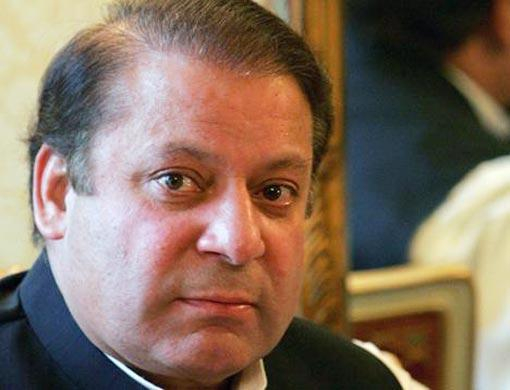
The likely success of Prime Minister Nawaz Sharif’s nominee as Pakistan’s next president in elections due on Tuesday may have helped solidify the Pakistani leadership’s credentials under different circumstances. Yet neither the choice of Sharif’s candidate — Mamnoon Hussain — nor the haphazard manner in which he is being groomed for the job, inspires confidence in the ability of the newly-elected government to begin tackling some of Pakistan’s toughest challenges.
Unlike the general elections in May this year which saw at least some euphoria over Sharif becoming prime minister for the third time, the electoral college for the presidential poll consists of members of the upper and lower houses of the federal parliament in Islamabad as well as Pakistan’s four provincial legislatures.
The opposition Pakistan Peoples Party’s decision to boycott the election on the grounds that the vote was hastily put together without consulting them indicates the animosity between Pakistan’s political rivals.
Hussain, a Karachi-based businessman and a relatively unknown figure till his appearance as a provincial governor some years ago, is a surprise choice. He outpaced Sartaj Aziz, the respected former minister of finance and foreign affairs, who has remained loyal to Sharif and was touted as the next president of Pakistan. Aziz presently serves as adviser to the prime minister on national security and foreign policy. As an experienced figure in public service, Aziz was widely considered to be the best man for the job.
Inconsequential figures
The nomination of Hussain, whose appreciation of statecraft and governance remains untested, underlines a disturbing trend. It resonates with Sharif’s penchant for surrounding himself with people who are inconsequential in the larger scheme of things. In Sharif’s defence, many of his supporters argue that the once powerful institution of the presidency has been turned into a symbolic one. That may be true in part. In a departure from the past when the president had the authority to dismiss elected governments and dissolve parliament, the president today is considered a side-player without such powers.
Yet, even symbolically, the presidency represents a much too visible institution to be taken lightly. Sharif had a brilliant opportunity to nominate a high-profile and respected figure who would have commanded more than just the nominal moral authority. Such a figure as president would have inspired confidence in a country facing recurring uncertainty.
At a time when the authority of the state continues to be challenged in some parts of southwest Balochistan and the northern Khyber-Pakhtunkhwa province, a president from one of these regions could have contributed towards a badly-needed internal reconciliation process. The opportunity, however, has been squandered at a time when Sharif’s new government is yet to find its feet.
Lack of direction
Since his appointment as prime minister less than two months ago, Sharif has faced the apparent unravelling of important elements of policies. He promised to oversee a concerted push to build consensus towards evolving a set of security policies for tackling a tough militancy challenge. Yet, a gathering of leaders from key political parties to undertake this exercise under the banner of an All Party Conference does not appear to be making progress.
The economy, which was once Sharif’s forte, continues to face challenges despite the new government overseeing a new budget in June. Rather than inspire confidence, the regime has instead presided over an erosion of confidence among businessmen, thanks to controversial policy choices.
A decision to allow Pakistan’s notoriously corrupt tax officials to have access to the bank accounts of any individual promises to backfire in at least two ways. On the one hand, Pakistanis will likely be discouraged from making further use of banks in a country with a large black economy.
On the other hand, there is no assurance against officials using their additional clout to further harass individuals in a country with a history of corrupt tax officials.
Finally, in the past week, the announcement of a new policy to deal with persistent electricity shortages appears to have backfired at least partly. Two of Pakistan’s provinces refused to give an instant thumbs up till such time that they had reviewed the policy in detail. Apparently, there wasn’t much in terms of prior consultation between the federal government in Islamabad and the provinces — an indication of the failure of newly-elected ruling politicians to recognise the significance of building consensus across the country.
Farhan Bokhari is a Pakistan-based commentator who writes on political and economic matters.









